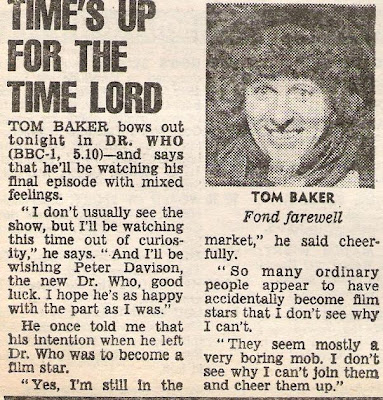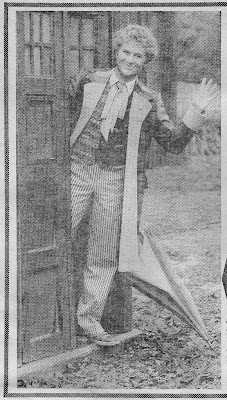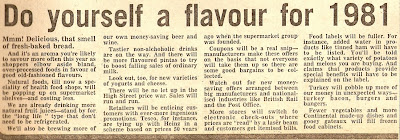It always sounds really snobbish when you name something you like that is mass popular, and the person you are speaking to says: 'Oh, really? I prefer...' - and names something obscure.
But I'm afraid that's genuinely how I am about the big 1980s-era American soaps. Dallas? Nope. Dynasty? Nope. Knots Landing? Nope.
I'm a dedicated Falcon Crest man.
Now, in England, Falcon Crest, or 'Falky' as I fondly nicknamed it, was often broadcast on ITV regional stations in grotty afternoon slots, or at Sunday teatime - sometime naff. But, as a shift worker, I managed to sink a basinful of it and loved it.
I suppose it all began with an idea for a series pilot possibly set in America and France, or a series pilot called The Barclays, about an American urban family moving from New York to small town Kentucky or...
Filming of a drama called The Vintage Years took place in the spring of 1981. This was the pilot for what would become Falcon Crest and featured some of the ingredients - including the location, the Spring Mountain Winery in California's Napa Valley, which would be the location for Falcon Crest.
It also featured Jane Wyman as Angela Channing, the leading Mrs Nasty of Falcon Crest, in a grey wig - which Miss Wyman hated!
It was a tale of vineyards and a family divided, very much as the series would be, but it wasn't the finished product by any means.
As it was never screened, I never saw it - but I believe it's now available online.
Changes were made to cast and characters - and Jane Wyman pushed for changes to Angela.
'She's very much a 1981 kind of lady,' she said just before Falky's American debut in December 1981.
My goodness, she was. English TV critic Hilary Kingsley described her in 1988 as 'rotten to the pips', but there was more to Angela than that. Her main problem, as her daughter Emma pointed out, was that she loved the land more than she loved her family. And was prepared to use any trick in the book to keep it.
Angela's role as Queen Bee of the fictional Tuscany Valley took a severe knock when her nephew, Chase Gioberti, arrived in the early 1980s to claim his inheritance. Don't worry. She was up to the fight.
Had Miss Wyman been cast because of her ex-husband, Ronald Reagan's, recent elevation (in November 1980) to US President? Jane Wyman said she had not. Rumours were later circulated that she had been offered a role in the future Earl Hamner production before the pilot was even in the pre-production planning stages (highly unlikely) and that she had banned mention of Ronald Reagan on the Falcon Crest set!
It all added to the interest - and Jane Wyman was quite capable of holding the viewer's interest long after the fascination of seeing Ronnie's ex-wife had faded.
What really attracted me to the show was its delicious sense of humour.
Hapless greedy and lustful Melissa Agretti telling her 'loving' husband Lance Cumson: 'Your whole family's weird. Your mother murdered my father...' for instance.
The characters actually stood back at times and saw the absurdity of the soapy plots.
It could be very droll - as Melissa said to Angela:
'Don't worry, Angela, I'll still be available for family occasions - weddings, funerals, and, of course, the occasional shooting.'
Ana Alicia was fabulous as 'that fiesty Melissa Agretti' - as Angela once called her.
It had all the prime time soap ingredients, of course, but I also thought it had more atmosphere and depth.
Angela's daughters, Emma and Julia, for instance - driven mad over a period of many years by their oppressive mother - and this madness manifesting itself in quite different ways.
Falky was enthralling - plane crashes, vicious business cartels, long lost relatives, earthquakes, shootings, fires, Nazis... it had the lot - and more!
Great cast, too. There were rumours of backstage hostilities. When veteran film actress Lana Turner appeared in one season, Jane Wyman reportedly refused to act with her - and some scenes had to be recorded separately. Finally, Miss Wyman was reported to have said that either she remained in the series, or Miss Turner - not both.
Lana Turner's character was killed off in a shooting at the Falcon Crest mansion.
As for the behind the scenes revelations - rumour or truth? The speculation all added to the fun of watching the series - and it was an immensely enjoyable series, made with great skill and gusto.
In 1981, the cast of Falcon Crest appeared to be quite dowdy, but, as the 1980s took wing, power dressing and glitz became the norm. Here's some of the regulars, circa 1987. The man in the middle is Lorenzo Lamas, Angela's grandson, Lance Cumson. He never quite outwitted his 'loving' granny.
I will never forget Jane Wyman as Angela, Margaret Ladd as her delightfully dotty daughter Emma, Abby Dalton as her other daughter - the driven-over-the-edge Julia Cumson, Chao Li Chi as Cha Li - the wise butler at the Falcon Crest mansion, David Selby as Richard Channing - the milk-drinking business mogul, Susan Sullivan as lovely Maggie Gioberti - persecuted in-law of Angela, Robert Foxworth as Chase Gioberti, Maggie's husband and Angela's goodly nephew, and Lorenzo Lamas and Ana Alicia as Lance and Melissa Cumson - wow, that couple had sparks!
Required viewing at the time - and on DVD now. It lifts any free afternoon way out of the mundane.
























































